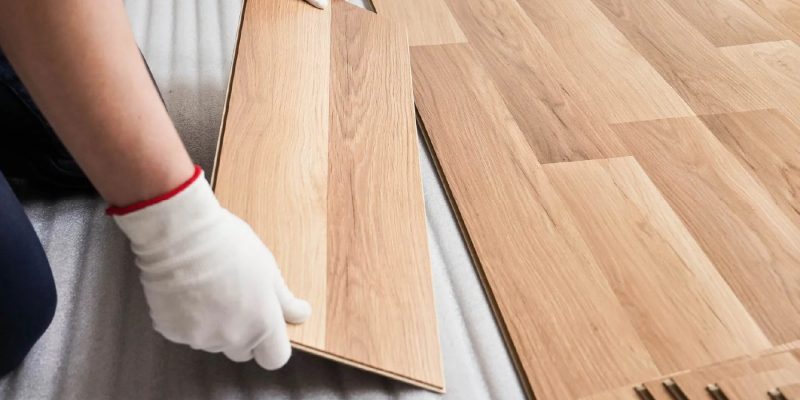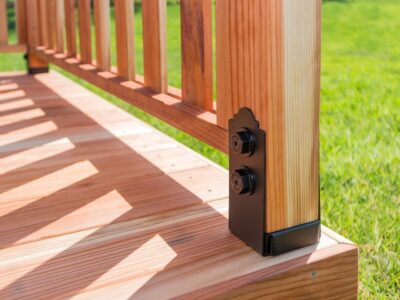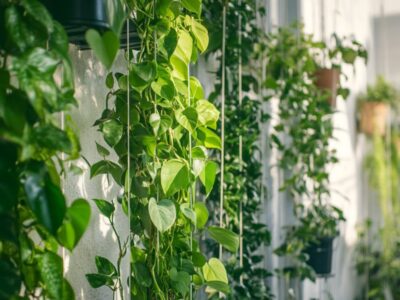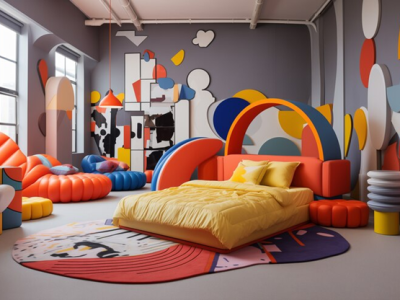Vinyl and laminate flooring share several advantages, such as affordability, endurance, beautiful looks, and ease of DIY installation. At close range, these types of flooring even look alike.
In every category, there is no superior flooring kind to the other. High-moisture regions are ideal for Vinyl Floors because it’s easy to maintain. However, laminate flooring has a higher resale value and gives a greater range of stylistic options.
Melamine resin and fibreboard are frequently used to create laminate flooring, which is a multi-layered synthetic product. The top layer of laminate is designed to resemble real hardwood, complete with knot details and imprinted texture imagery to replicate wood grain patterns. Vinyl is similarly created entirely of synthetic materials; but, in order to control the product’s colour, flexibility, hardness, and shine, different chemicals are added to polyvinyl chloride.
In the end, the flooring product you select must be able to withstand daily use in an active household. The selection of inexpensive and simple-to-install flooring styles has never been greater thanks to the explosive growth of durable flooring products in recent years. The decision between vinyl and laminate flooring is influenced by your climate, budget, and performance requirements.
Vinyl Vs Laminate: Pros and Cons
- Place of Installation:
For spaces that are not ideal for real wood flooring, laminate or vinyl flooring can replicate the appearance and longevity of wood flooring. Both solutions are excellent choices for busy homes with pets because they can withstand heavy foot traffic and are stain- and water-resistant as long as they are cleaned up right away. These qualities allow dining rooms, living rooms, bedrooms, and offices to employ both vinyl and laminate flooring.
It should be emphasized once more that the majority of luxury vinyl is totally waterproof, even though certain laminate materials are water-resistant. Waterproof luxury vinyl solutions work well to keep liquids out of spaces like kitchens, bathrooms, basements, laundry rooms, and mudrooms, where moisture protection is most important. Certain laminate products can be used in these environments, but their claims of being water-resistant must be supported by testing guarantees and product warranties.
Laminate flooring is not a suitable choice for any space where there is a chance of standing water! Appropriate laminate products work well in spill-prone situations, but if a spill does occur, they must be cleaned right away.
- Ease of Installation:
In terms of maintenance simplicity, homeowners may clean up easily and effectively with laminate and vinyl floors in a shorter amount of time than they would with a solid hardwood floor. If you have Bathroom Flooring, you should use the hard surface option when you sweep, clean, mop, or vacuum your floor every day to avoid collecting dirt particles that could scratch the finish. It’s critical to remove spills from laminate flooring as soon as possible since standing water can cause swelling and warping. Wet mopping is not an option for laminate floors because they are not totally waterproof.
However, wet mopping is more comfortable with waterproof luxury vinyl! Your luxurious vinyl surface is not only durable with a sturdy texture, but it also cleans easily with warm water. Vacuum or sweep your vinyl flooring as frequently as you can to make simple preventative maintenance.
Use a cleaner designed specifically for vinyl or laminate care on your floor as needed. If your vinyl or laminate flooring gets damaged, it can usually be repaired more quickly and easily than most other flooring materials.
- Cost of the Flooring:
As is typically the case with homeowner decisions, the expense will be the last deciding factor. As actual hardwood is more expensive, the more affordable hard surface options are vinyl and laminate. Although a thick, high-quality laminate floor with relevant certificates would cost more, it will also allay the worries associated with cheap laminate from international producers.
Compared to other forms of vinyl flooring or sheet vinyl, luxury vinyl flooring is more expensive. Thus, keep it in mind as you revamp your house. Solid hardwood, engineered hardwood, ceramic tile, or natural stone flooring are better options than vinyl or laminate if you want to increase the resale value of your house. However, both laminate and vinyl flooring may give your place a gorgeous makeover if you’re about to sell and need to update quickly!
Which is More Expensive?
You may be wondering which is more expensive in the vinyl flooring vs. laminate argument. Since both floorings are less expensive than alternatives like hardwood or porcelain tile, their costs are actually rather close. However, vinyl might be more expensive, particularly if you’re looking at luxury vinyl selections. A decent general rule of thumb is that luxury vinyl floors get more expensive as their quality rises.
Difference Between Laminate and Vinyl Flooring
Vinyl Flooring– Vinyl flooring comes in countless styles. Luxury vinyl planks, luxury vinyl tiles, and sheet vinyl choices that resemble real stone and hardwood are available. Its durability varies from exceptional to very good. High moisture settings are appropriate for it, and certain products are completely waterproof. It requires little upkeep.
Laminate Flooring– There are countless styling options with laminate flooring. It comes in tile and wood finishes. Its durability varies from average to excellent. It can tolerate some moisture exposure because it is water resistant. It requires little upkeep.
In terms of design and appearance, laminate flooring is typically slightly more expensive. It has more realistic embossing that resembles hand-scraped hardwood in appearance. With the right embossing techniques, vinyl can resemble wood, but thicker core vinyl flooring gives the most genuine appearance.
The materials used to make laminate flooring and vinyl flooring are different. Synthetic materials are used in the production of vinyl. PVC vinyl and a plasticizer are often applied on a fibreglass base layer of vinyl sheets. It is then polished with layers of wear protection such as no-wax polyurethane and embossed with a design. Because laminate flooring is typically a bit thicker than vinyl flooring, it feels warmer and softer underfoot.













Comments